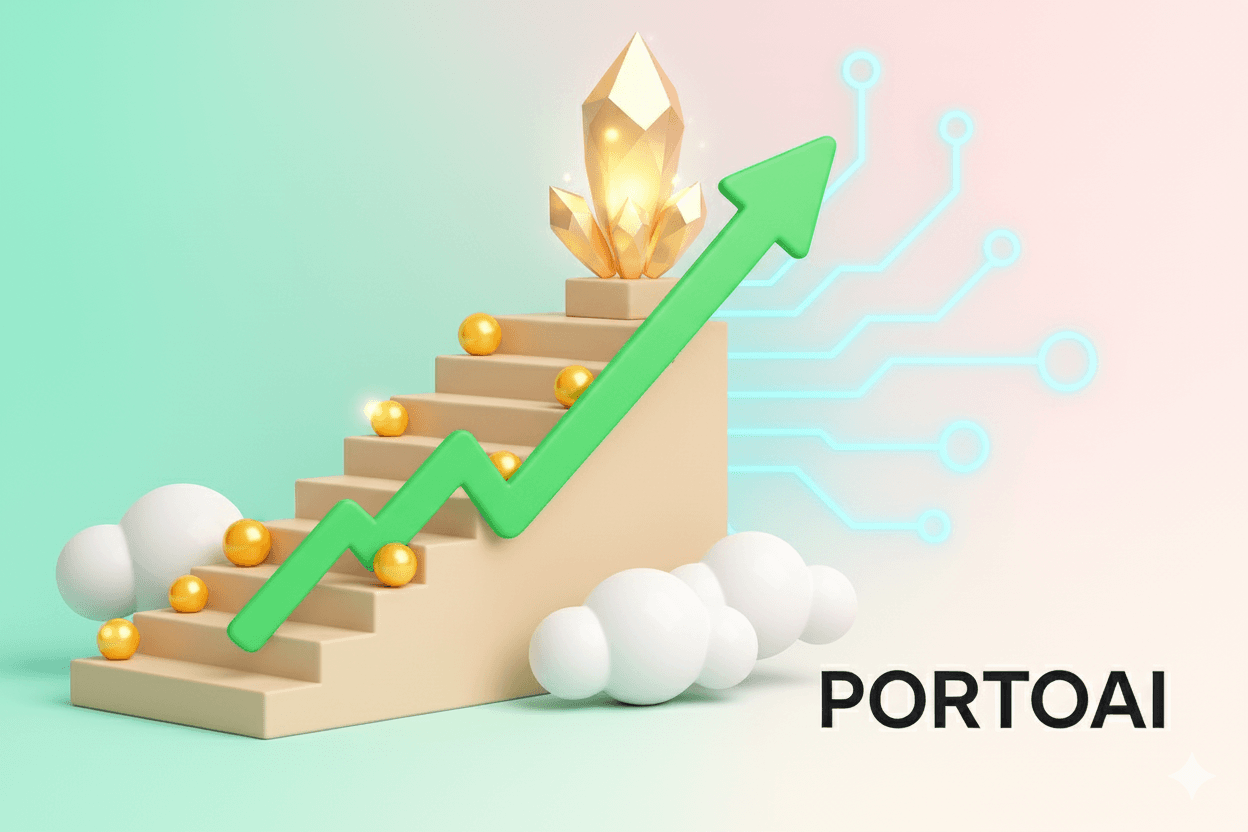7 Key Investment Lessons from the 2008 Financial Crisis

Venkateshwar Jambula
Lead Market Researcher
5 min read
•Published on September 17, 2024
•Unpacking the 2008 Financial Crisis: 7 Enduring Investment Lessons
The year 2008 marked a watershed moment in modern financial history. The collapse of Lehman Brothers sent shockwaves through global markets, triggering widespread economic recession, significant investment losses, and a stark reminder of systemic financial risks. Beyond the immediate devastation, this crisis served as a profound educational event, offering invaluable lessons for disciplined investors. Over a decade later, these insights remain critical for navigating market volatility and building resilient portfolios.
Understanding the 2008 Economic Recession
The crisis originated in the U.S. subprime mortgage sector in 2007, where lending to individuals with a higher risk of default led to a cascade of failures. The bankruptcy filing of Lehman Brothers, a major financial institution with over $600 billion in assets, precipitated a global financial system collapse. Its highly leveraged structure meant even a modest market downturn could wipe out its capital, a scenario that rapidly unfolded. This event led to one of the most significant market corrections since 9/11, impacting markets worldwide, including India's S&P BSE Sensex.
The Enduring Investment Lessons of 2008
Reflecting on this period reveals fundamental truths about investing that continue to guide prudent decision-making:
1. Cultivate Patience and Maintain an Invested Stance
During the 2008 crisis, many investors witnessed their portfolio values plummet by 30-40%. This erosion of wealth often triggered panic-driven selling, leading to the crystallization of losses without proper due diligence. However, investors who maintained a long-term perspective and assessed the fundamental economic landscape often emerged stronger. The key takeaway is that equities are a vehicle for long-term wealth accumulation, not short-term gains. Selling during periods of panic without fundamental changes in an investment's underlying value locks in losses and forfeits potential recovery.
2. Borrow Judiciously: Need, Not Qualification, Should Drive Debt
The 2008 recession was significantly fueled by an unsustainable credit bubble. Excessive debt magnifies financial risk, especially during economic downturns. Investing with borrowed funds, particularly for speculative purposes, is a precarious strategy. Prudent financial management dictates borrowing only when there is a genuine need and a clear capacity for repayment without compromising essential living expenses.
3. Diversification is Key: Avoid Market Exposure is Not Risk Prevention
Every investment decision involves a trade-off. While avoiding the stock market might seem like a way to mitigate downside risk, it also means foregoing the potential for superior long-term returns that equities historically offer. Conversely, solely investing in debt instruments carries inflation risk, eroding purchasing power over time. A balanced approach, diversifying across asset classes like stocks and bonds, is crucial. Stocks drive wealth creation, while bonds provide a layer of risk mitigation. PortoAI's Portfolio Analytics can help you meticulously balance these allocations.
4. Abstain from Speculation: Focus on Fundamental Value
The 2008 period saw a surge in speculative trading, particularly in equities and derivatives, with the misguided aim of achieving overnight wealth. These high-risk strategies, often amplified by borrowed capital, proved disastrous for many. As Warren Buffett famously noted, certain derivatives are 'weapons of mass destruction.' The market's sharp correction served as a harsh lesson: speculation is a losing game. Instead, focus on understanding and investing in fundamentally sound assets.
5. Active Engagement and Diligent Monitoring are Imperative
Successful investing requires more than just initial capital deployment; it demands ongoing attention. Investors must dedicate time to reading, understanding market dynamics, and monitoring their portfolios. Those who invested and then passively neglected their holdings often struggled to recover. Your financial future is your responsibility. Regularly reviewing your portfolio's performance, understanding the impact of macroeconomic events, and making informed adjustments are vital. PortoAI's Market Lens provides real-time insights to support this active management.
6. Prioritize Your Capital Over Specific Investments
It is essential to maintain an objective view of your investments. While you may develop a preference for a particular stock or fund, no investment is inherently risk-free. Prices fluctuate, and even favored assets can decline. Understanding that nothing remains perpetually optimal is crucial. Be prepared to divest an investment when circumstances warrant, even if it feels difficult. This allows you to redeploy capital into new, potentially more lucrative opportunities. PortoAI's Valuation Tools help you objectively assess when an investment's price no longer aligns with its intrinsic value.
7. Seek Investments That Offer Peace of Mind
The pursuit of quick riches in capital markets often leads to stress and sleepless nights. True investment success is built on patience, persistence, and a healthy respect for market risk. Investments that cause undue anxiety are rarely worth the potential reward. A disciplined approach, characterized by peace, detachment, and acceptance of market realities, leads to sound decision-making. Remember, individual investors are part of a vast, complex system where unforeseen events can occur. Discipline and humility are your greatest allies. PortoAI's Risk Console helps you quantify and manage potential downsides, fostering a more rational and peaceful investment experience.
Conclusion: Wisdom from Adversity
The 2008 financial crisis, while painful, imparted indelible lessons in financial discipline, risk management, and the importance of a long-term perspective. By internalizing these principles and leveraging advanced tools like PortoAI, investors can navigate future market challenges with greater confidence and achieve their financial objectives.
Blog
Investment Insights and Tips
Explore our latest investment strategies and insights.

Stocks
Master Investment Psychology: Control Emotions for Smarter Stock Decisions
The Psychology of Stock Investment: Understanding Emotions That Affect Investment Decisions A stock market is a funny place – both the seller and buye...
Venkateshwar Jambula
November 7, 2024
•4 min read

Stocks
Power Grid India Stock: Analyzing PGCIL's Price Movements & Future
The Rise and Fall: Unraveling the Power Grid Corporation of India Stock Price The Power Grid Corporation of India Stock Price (PGCIL) has experienced ...
Venkateshwar Jambula
November 6, 2024
•10 min read

Stocks
Are Multibagger Stocks Still Possible in 2025? Your AI Guide
These 6 Multibagger Stocks Exploded in 2025 — Is Your Portfolio Still in 2022? Till June 2025, the benchmark Sensex has risen by around 4%, reflecting...
Venkateshwar Jambula
November 5, 2024
•11 min read

Stocks
Top 5 Indian Growth Stocks & Sectors for 2025: AI-Driven Insights
Top 5 Best Growth Stocks in India & Sectors to Watch in 2025 You see the market correction in late 2024 and early 2025 was driven by weak economic...
Venkateshwar Jambula
November 4, 2024
•9 min read